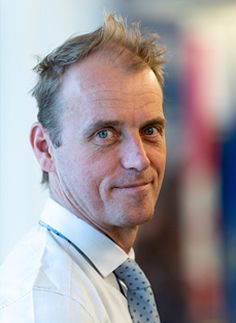Message from the Technical Chair
PV GOES WILD

Robert Kenny
Technical Programme Chair
European Commission -
Joint Research Centre, Italy
As the energy sector accelerates and solar PV enters the multi-TW era as the most affordable and fastest growing energy source, the PV research and innovation community is ready to be the key driver and deliver solutions and developments to the energy transition. As part of the expansion, applications of PV are growing ever more important, and the agricultural PV (Agri-PV) sector especially, and this is the inspiration for the title of this year’s call for papers.
I hereby announce the call for papers for the 42nd European Photovoltaic Solar Energy Conference (EU PVSEC), which will take place in Bilbao, 22-26 September 2025.
The programme is arranged in 5 topics as follows: Silicon Materials and Cells; Thin-Films and New Concepts; Photovoltaic Modules; Photovoltaic Systems; Photovoltaics in the Energy Transition. The technology topics highlight new developments in silicon cells, thin-films, perovskites and tandems. The Module and Systems topics cover design, implementation, performance and operation, as well as the multitude of applications in areas such as buildings (BIPV), integration into transport infrastructure, agriculture (Agri-PV) and on water (Floating PV), and direct uses of PV generated electricity. The energy transition topic covers the wide range of multidisciplinary efforts required to ensure the rapid deployment of PV technologies on a massive and global scale as a key element of the ecological transition, including technical aspects, economics, including the economics of manufacturing, markets, policies, sustainability, and social challenges.
Some changes have been made within the programme topics as compared to the previous edition, which I outline here, starting with three new subtopics:
Agri-PV is a rapidly growing application area and has now got its own subtopic (4.5) within topic 4.
A further new subtopic (4.7) on the direct uses of PV generated electricity, such as green hydrogen generation, has been introduced into topic 4 (these uses were previously covered within subtopic 5.1).
A new subtopic (5.5) on the economics and geo-economics of manufacturing has been introduced in topic 5, considering the importance of manufacturing for the future success of the PV sector globally.
Other changes are as follows: It has been clarified that work on studying and improving the stability and lifetime of thin film devices in topic 2, especially perovskite, up to the submodule level is to be treated in the relevant subtopic. The previous subtopic “Balance of System” components has been suppressed and its contents are now covered within the design of systems subtopic (4.2). The field of photovoltaics for space is constantly evolving and innovating to meet the challenges and opportunities of the fast-growing space economy, and all space related abstracts will now be covered within Subtopic 4.6 which covers a range of PV applications. Subtopic 5.1 has been renamed “Grid Integration and Flexibility Enablers”, and it is clarified that the subtopic’s focus is on the integration of large amounts of renewable, especially PV, generated electricity into the wider energy system, including the related electronics and digitalisation, and flexibility enablers.
I hope the topics and explanations will be self-explanatory, but there will be inevitably some gaps and some overlaps, especially since much work in such a fast-growing field is interdisciplinary. In case of doubt as to which subtopic your abstract belongs, please consider which aspect of the work has the most scientific novelty. For example, in the development of a perovskite-silicon tandem device, if the novelty lies mostly in improvements to the silicon bottom cell then it most likely belongs in subtopic 1.3 “Silicon Bottom Cells for Tandem Photovoltaics”, whereas if the novelty is more in the perovskite material or the complete device, then it would most likely belong in subtopic 2.1 “Perovskite-based Tandems and Multijunctions”.
As is clear from this extensive programme, the EU PVSEC offers a unique opportunity to share your ideas and developments and network with workers from across the entire field of photovoltaics, as well as an opportunity for learning about key aspects of different fields. During the week, a wide range of interactive panel discussions and parallel events will complement the technical programme.
I wish to also highlight the PV Academy that now enters its 4th edition. The PV Academy offers students and new workers in the field, (and also those who wish to broaden their expertise) an opportunity to increase their knowledge about a range of key photovoltaics areas with a set of tutorials by recognized experts. The full programme will be announced at a later date, but please note that it will be held on the Sunday before the conference week, i.e. Sunday 21st September.
I look forward to receiving your abstract for consideration for inclusion in our exciting programme, and to meet you in Bilbao, Spain, next September.

